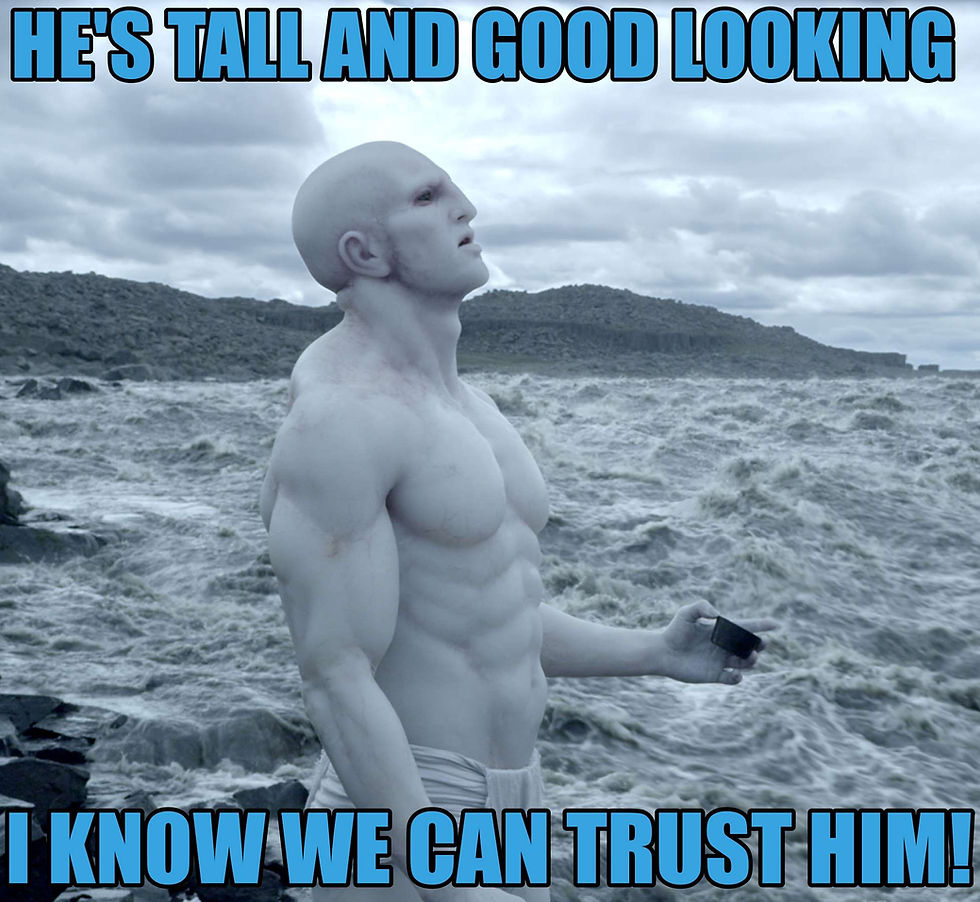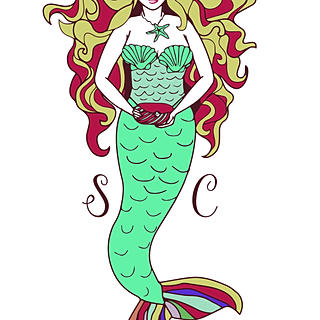Management Lessons from Movies, Chapter 4: Prometheus
- Bill Holmes
- Jul 5, 2019
- 4 min read

“Big things have small beginnings.” David
“A king has his reign, and then he dies. It's inevitable.” Meredith Vickers
The 2012 movie Prometheus was part of the Alien franchise and addressed the origins of the original alien and and even attempted to answer the question of where life on earth originated! The movie starts millions of years ago with a spaceship dropping off an advanced humanoid creature on a primordial planet. He consumes a dark liquid and his body begins to disintegrate, seeding the planet with the building blocks of life.
We then jump to the year 2089 where an archaeologist discovers a star map comprised of several disconnected ancient cultures, and they interpret this as an invitation to meet the species that was responsible for life on earth. The Weyland Corporations (yes, the same company as in the Alien vs Predator movies) funds a trip to the star system indicated in the map. Fast forward several years and the starship Prometheus is entering the atmosphere of planet where they discover a large alien structure resembling a pyramid. Inside the pyramid they find a decapitated body of a large alien (they begin referring to them as the “Engineers”), as well as video footage of the Engineers reacting to an emergency long ago. They also find hundreds of cylinders filled with a black substance, and the synthetic person (David from the earlier movies) sneaks one of the cylinders back into the ship.
Back on the ship they discover that the Engineer’s DNA is nearly identical to theirs, leading to the conclusion that they were responsible for the human race. A storm comes in and several of the crew are trapped on the alien ship where they discover a creature that quickly attacks them and exposes them to the black liquid in the cylinders. It then forces its way down Fifield’s suit and into his throat (like the original alien!) Back on the ship, David intentionally infects Shaw with the black fluid.
The next day they return to the structure and find one of the crewman dead. They also find a live Engineer in some type of cryosleep and a 3D map of the star systems with Earth specifically identified. Several crew members are infected, several are killed and Shaw finds herself “pregnant” with a horrific alien that she removes using an automated surgery machine. Weyland makes a surprise appearance and we learn that he wants to ask the engineers to use their technology to save his life. All evidence points to the theory that the moon is in fact a military installation, and the engineers themselves were killed by their own biological weapons.
The remaining crew return to the structure and awaken the Engineer, who is located in what is discovered to be a space ship. David speaks an alien language to the Engineer, asking him why they made mankind and asking him to extend the life of his own creator, Mr. Weyland. The Engineer responds by ripping his head off and killing Weyland and Ford. Shaw escapes from the alien ship as it is activated by the Engineer. The still-active David suggests the Engineer is going to release the ampules of black fluid on Earth, thus killing every living creature in the planet.
Ultimately, the Engineer is defeated by the tentacled creature that was originally growing in Shaw. Shaw believes she's stranded on the planet until David contacts her and tells her that there are more of the Engineers ships elsewhere on the planet. She recovers David's remains from the alien ship and together they travel to and activate another Engineer ship. Shaw and the remains of android David then take off to travel to the Engineers' home world, Paradise, in an attempt to understand why they created humanity and why they later attempted to destroy it.
This is a very interesting movie, and it has many “management” lessons.
The first is that you can’t trust someone just because they are tall and good looking! I know that sounds trite, but how many short and unattractive people do you see holding CEO positions? Not many. There is a growing body of research that indicates that tall and attractive people earn more money and are promoted more rapidly. The Engineers had classic “roman” profiles, were very muscular and were tall, but they certainly weren’t to be trusted! Don’t be shallow! Judge people by their character, not their height or appearance.
The second lesson is that you must always question your assumptions. That is a core technique in risk management, and you should apply that in all situations. The team assumed that because the Engineers created life on earth and left a “map” back to their location, that they would welcome their creations! They continued to follow this flawed analysis in the face of significant evidence to the contrary.
The third lesson is that you need to adapt when presented with new variables! Even when several members of their crew were dead, all indications were that the planet was a military base, and the Engineers may not be as benign as they initially thought, they still woke up the Engineer and asked him for help. This was a tragic mistake that led to the deaths of the rest of the crew.
The final lesson is that old adage that “the enemy of my enemy is my friend”. Shaw was trapped between the Engineer who wanted to get through her to the ship so he could destroy earth, and the alien who just wanted to reproduce by laying eggs in her. So she turned them on each other! Note that she didn’t stay around to forge a health relationship with whomever won, rather she goaded two rivals to attack each other and used that to her advantage while she got out or there! Even enemies can be useful if pointed carefully!
Keeping with the Alien theme, the next post will be on Alien: Covenant.
Coda
I have been spending a lot of time thinking about ethics, specifically what constitutes an ethical “system”. Is it one where employees are held to a standard of perfection in conduct related issues? And if so, who decides what perfection looks like? I had an ethics professor in graduate school tell me that the definition of an unethical system is one in which normal people making normal decisions based on available facts are later punished for their actions. That seems about right to me.









Comments